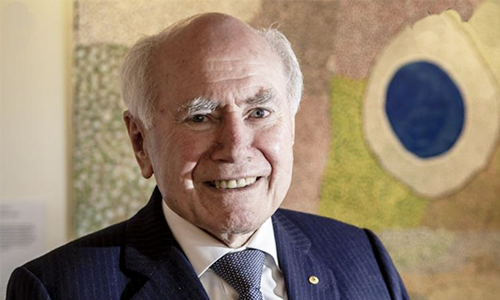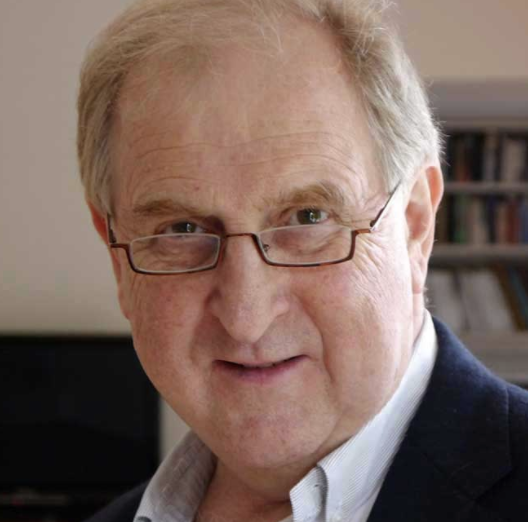
by KEVIN DONNELLY – WHAT is conservatism and what does it mean to be conservative?
Given the federal election result and the arguments put by LINOs (Liberal in Name Only), including Simon Birmingham, that the Liberal Party must be more progressive and less centre-Right, the issue is more than academic.

- Good things are more easily destroyed than created.
- Conservatives retain those parts of society that work – and change only those that fall short.
- While progressives yearn to throw everything away – and start afresh.
In his essay On Being a Conservative, Michael Oakeshott says to be conservative, instead of involving a “creed or doctrine”, involves a particular disposition, one characterised by “certain kinds of conduct and certain conditions of human circumstance to others”.
He suggests being conservative “is to prefer the familiar to the unknown, to prefer the tried to the untried, fact to mystery, the actual to the possible, the limited to the unbounded”.
UNINTENDED
The incessant call for change ignores the reality that not all change is beneficial, as there are often unforeseen and unintended consequences.
The rush to adopt 21st-century digital technologies, including social networking sites, ignores the adverse impact on how people interact and socialise. A virtual world can never replace face-to-face contact.
One of the tropes used to criticise conservatism is that it is ossified and backward-looking. While it’s true conservatives value the past and the importance of tradition, it is equally true conservatism is forward-looking and capable of evolving across time.
In Culture and Anarchy, Matthew Arnold details what constitutes a worthwhile culture: “the best which has been thought and said in the world”.
He describes established knowledge as turning “a stream of fresh and free thought upon our stock notions and habits, which we now follow staunchly but mechanically”.
The need to continually test what is passed from one generation to the next also is argued by Italian philosopher and cultural critic Augusto Del Noce.
Distinguishing between reactionaries and conservatives, Del Noce observes while the former yearn to return to a lost golden age, the second accept the present will always be different to the past.
He says conservatism represents a “critique of utopia, of the idea that it is possible to achieve a worldly situation in which all contradictions have been solved, and to create conditions in which there is perfect harmony between virtue and happiness”.
OPPRESSION
Whereas utopian, materialistic ideologies lead to oppression and domination, Del Noce defines conservatism “in the best sense as conservation of freedom”.
Drawing on Edmund Burke, British cultural critic Roger Scruton writes: “Society, he argued, does not contain the living only; it is an association between the dead, the living and the unborn … It is a shared inheritance for the sake of which we learn … to see our place in things as part of a continuous chain of giving and receiving”.
The irony is while the woke cultural-Left champions Aboriginal heritage and traditions in what is taught in our schools and universities, the Western civilisation underpinning and nourishing Australian society is denigrated and attacked as Eurocentric, obsolete and of no benefit or value.
Scruton says underlying conservatism is the “conviction good things are more easily destroyed than created, and the determination to hold on to things in the face of politically engineered change”.
While he is writing about culture, the energy crisis facing the nation in the rush to so-called clean, renewable energy at the expense of coal and gas as much-needed reliable sources of power illustrates the dangers of embracing policies based on woke, politically engineered change.
While much of the post-World War II intellectual debate has focused on the battle between communism and capitalism, Scruton makes the point that the current battle of ideas is between political correctness, since redefined as being woke, and what he terms “cultural conservatism”.
SECULAR
He says conservatives have “turned in a new direction, exploring the roots of secular government in the Christian inheritance, and the place of religion in society which has made freedom of conscience into one of its ruling principles”.
After referring to Samuel P Huntington’s The Clash of Civilisations and the Making of World Order, Scruton argues Western societies have to regain “confidence not in our political institutions only, but in the spiritual inheritance on which they ultimately rest”. A lesson the Liberal Party needs to learn.PC












I never expected to make this comment having been a Liberal-National voter all of my voting life, but I am fed up with woke fools, LINO left.
Go back to basics of the Menzies’ Liberal Party of Australia, stand for what makes good sense and reject the rest.
For example, the disastrous and expensive transition to wind and solar rejecting reliable coal fired power stations, gas fired, nuclear, thorium molten salts reactors has been economic vandalism and the latest news is even worse. Stop playing politics and consult engineers and accountants.